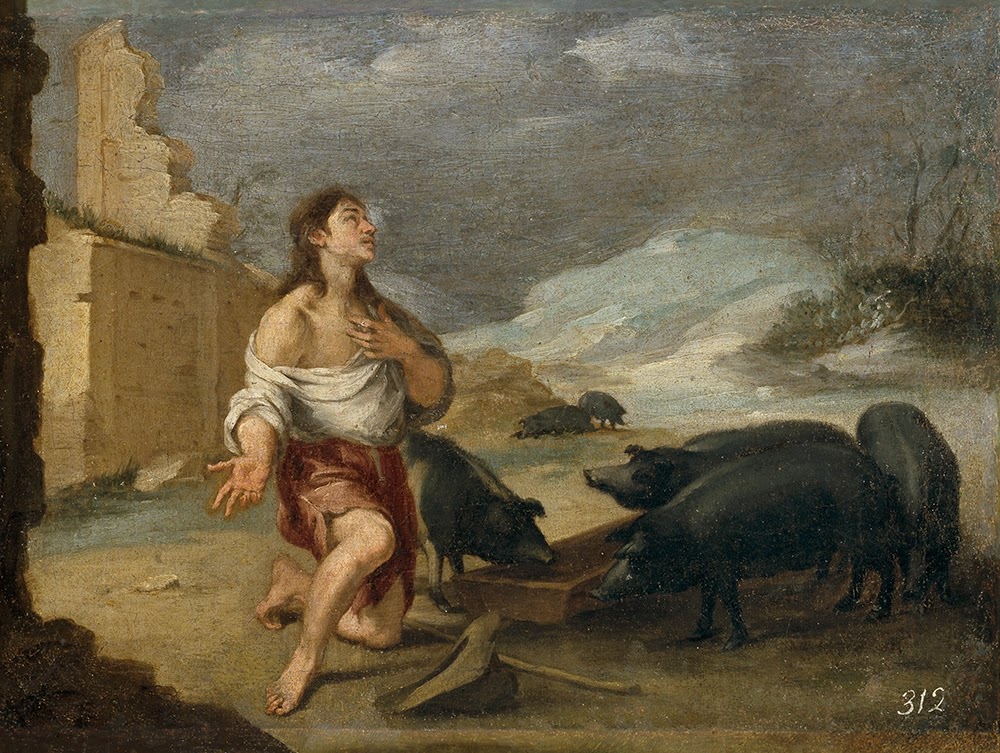Corpus Christi (C)
For the past week, I was on vacation with a group of young adults in the mountains of western Colorado. Among the 15 of us were four priests, a seminarian, several married couples, at least one person discerning religious life, and a handful of single people. We spent the days hiking and biking and the evenings cooking, telling stories, singing songs, and of course, lifting our hearts and voices to the Lord in praise.
As we started out on one of our hikes, I asked a couple of the people in the group what they thought I should preach about this Sunday, on the Solemnity of the Lord’s Body and Blood. The conversation lasted several miles and left me with much to think about. In fact, it was so insightful that I titled that hike on Strava as “Afternoon Homily Writing.”
As we talked about the Eucharist, we kept coming back to the question, “Why does the Eucharist matter?” Obviously, we believe that it does, but we were searching for the right way of expressing why it matters for us, for the Church, today. How can we say that the Eucharist matters in a way that is convincing to people who have fallen away from or lost their faith in it?
So, I’m going to preach this morning on our answer to that question – on why the Eucharist matters.
The Eucharist is, of course, the Body of Christ. And the Church is also the Body of Christ. Jesus is only one person, and thus can only have one Body, so therefore the Eucharist and the Church must, at their essence, be one and the same.
But that would also mean that we, as part of Christ’s Body the Church must also be part of Christ’s Body in the Eucharist. How is that possible?
In the 2nd century, the bishop of Smyrna in modern-day Turkey named Polycarp was put to death for refusing to worship the Roman Emperor. The authorities were at first unsuccessful because, although they tried to burn Polycarp at the stake, instead of being consumed by the flames, those who observed the event noticed his skin looked not like burned flesh but like baked bread and from the fire arouse a sweet aroma “like that of incense or of costly spices.”
Polycarp gave up his life for Christ, and thus he became a Eucharist. As Paul recounts the event of the Last Supper, he tells us that Jesus “took bread, and, after he had given thanks, broke it and said, ‘This is my body that is for you.’” Polycarp gave his body over to Christ; and Christ allowed those who witnessed his martyrdom to see how he had become one with Christ’s Body, even as his body also came to look like bread.
The martyrdom of Polycarp was undoubtedly extraordinary. But what happened to Polycarp – that his body was transformed into Christ’s Body – is something that happens to us each time we receive the Eucharist in faith and love. According to Saint Augustine, when we receive Communion, we become what we receive. As we receive the Body of Christ, we become the Body of Christ. The Eucharist makes us a Eucharist.
But we have to circle back to our question: why does the Eucharist matter? Why does it matter that we become a Eucharist?
Notice in the Gospel how Jesus responds to the hungry crowd. The disciples want to send them away because they have nothing with which to feed them. Jesus’ first reaction is to say to his disciples, “Give them some food yourselves.” Clearly this is beyond their capacities, but when they object that all they have are five loaves and two fish, Jesus does not retract his command, but enables his disciples to fulfill it. He takes them, looks up to heaven, breaks them, and gives them to his disciples to distribute to the crowd.
When we gather to celebrate the Eucharist, Jesus repeats those very same actions in the priest as he celebrates the Mass: he takes bread, looks up to heaven, breaks it, and gives it to his disciples. But as we become the Eucharist, Jesus does the very same thing with each of us. He takes us into his hands, as bread, looks up to heaven, breaks us, and gives us to the crowd, so that all may eat and be satisfied.
Jesus, then and now, responds to the hunger of the world by saying to his disciples: “Give them some food yourselves.” Or rather, “Give them yourselves as food.”
When I asked my friend Allie why she thought the Eucharist mattered, she shot back immediately, “Lumen Gentium 34, bro.” Now because I obviously have the Dogmatic Constitution on the Church of the Second Vatican Council committed to memory, I immediately knew that she was referring to where Chapter IV says about the laity that “Together with the offering of the Lord’s Body, they are most fittingly offered in the celebration of the Eucharist. Thus, as those everywhere who adore in holy activity, consecrate the world itself to God.” Well, alright, I didn’t know that off the top of my head, but she did! She knew that passage because it matters deeply to her that the Church calls her to offer herself in the Eucharist to God that she would bear his Body, through the Eucharist that she has become, to feed the hungry world.
So, the Eucharist matters because it makes us into the Body of Christ with which Christ feeds the world. The more we open our hearts to receive the Eucharist in faith, the more it will extend through every fiber of our being and convert us – every cell of us – into Christ’s Body. And as his Body, we say that the bread that we have become will be given up “for you”, for the world, as we are broken and shared among the crowd.
No matter where we look, we can see the hungry crowd. Jesus sees them too – and he tells us to go feed them. Think how beautiful it would be if every Sunday we gathered here together with the conviction that Jesus feeds us with his Body, so that his Body can feed the world! He wants us to carry his Body in ours into every place, every relationship, every situation we encounter so that he can be present there in us and through us give the food for which the world longs.
As I look back on the time spent with friends this past week, I can see how Jesus fed me – and continues to feed me – through them. And I believe Jesus likewise calls me to feed others and for you to do the same.
May we draw near to the Lord’s Body and receive him into the depth of our being, that he may change us more and more into his Body, so that as his Body, we may be fed and in turn feed the world.

-1.jpg)


Comments
Post a Comment